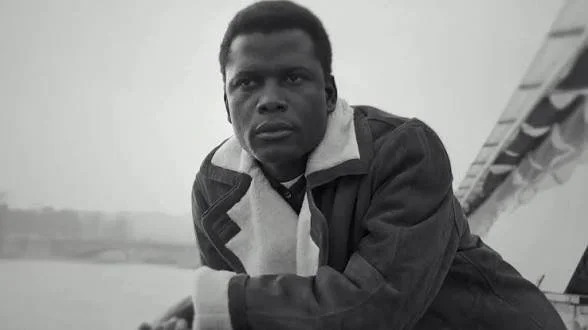
Sidney: How one legend changed Hollywood and beyond
by Kathia Woods
Sidney Poitier was more than just a movie star. He was a Black man with talent who was given an opportunity. That person who had the courage and self-awareness to recognize that the imagery of what it meant to be a Black man on the screen needed to change, but being the first came at a high cost. The documentary Sidney, directed by Reginald Hudlin and produced by Oprah Winfrey, tells the story of the man rather than the icon. Sidney had to overcome many obstacles, including his third-grade education and Bahamian accent, but most importantly, racism.
Prior to Sidney, the only images of Black men on the screen were buffooni’ in nature. While it is easy to criticize those who took on these roles, it is important to remember that while black cinema existed, it lacked the financial resources and support of mainstream Hollywood.
Poitier's upbringing is explored in the documentary Sidney. Many will consider his birth in a family without running water or electricity to be a disadvantage. It was his pride in himself and his race that gave him the courage to face what lay ahead that came from his parents.
Sidney Poitier is best known for his roles in Lilies of the Valley, To Sir with Love, and Guess Who's Coming to Dinner, to name a few.
He, like many others, began his career with the Negro Ensemble Theater. He was initially turned down due to his poor reading abilities.
Poitier discusses how that moment inspired him to improve his reading skills in interviews conducted prior to his death.
We get to see the man, not the icon, when he speaks about his struggles. Not the scenes in which other luminaries discuss his greatness, but these are the best parts of the film. We see how difficult the hill he had to climb in those confessionals.
Many people admire the polished Hollywood silhouette, but many people, primarily white people, do not understand the loneliness and stress of carrying not only one's own dream, but the dreams of an entire community.
Another aspect of the documentary that demonstrates his humanity is him discussing the dissolution of his first marriage. His first wife, Juanita Hardy, was instrumental in helping him build the career he desired. It was also nice for her to share her thoughts on their marriage and what she believes caused it to fail. When a successful Black man begins his rise with a Black woman, she is often thought to be inferior to the second wife when she is white. One is considered a prize, while the other is simply present. The documentary gives Hardy the respect and reverence she deserves.
Hardy and Poitier had three daughters, who are also featured in the film. His younger children have a different perspective on the man, but they are unable to speak about his rise. Overall, it's comforting to know that, despite the divorce, he was a wonderful father to all of his children.
It was also nice to hear him talk about his love affair with Diahann Carroll. She, like him, was a part of the new Black Hollywood. Caroll, when she was alive, spoke openly about her love for Sidney and how she was supposed to attend the Academy Awards with him, but given the state of social society at the time, they both felt it was inappropriate for her to go. After all, he was still married.
Sidney gives us many insights into him as a man and some of his post-60's triumphs, but while good, it falls short of being great. The film does not challenge the fact that, while Poitier never played a servant or allowed himself to be seen as a clown, it fails to hold Hollywood accountable for boxing him in.
They didn't let him be indifferent or imperfect because, back then, as now, they lacked the courage to cast Black actors in nuanced roles.
Sidney is an excellent film for those interested in learning more about Poitier's point of entry. It's motivating because it demonstrates that, despite many obstacles, with determination and opportunity, anyone can overcome anything.
Sidney is out in theaters and on AppleTv today

